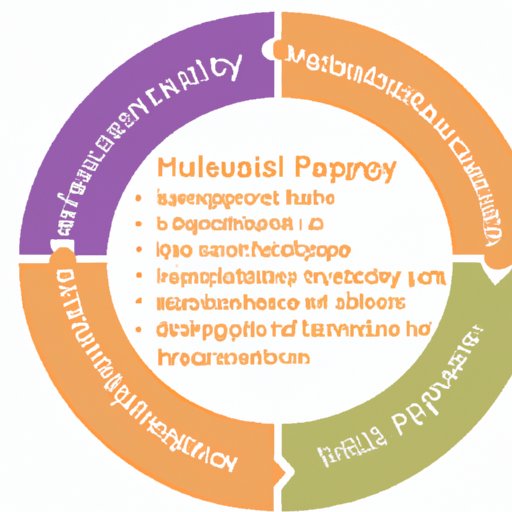Introduction
Psychology is a field of study that explores the behavior and mental processes of humans and animals. It is considered a “hub science” due to its ability to connect and interact with many different scientific fields. In this article, we will explore why psychology is a hub science and how it contributes to advancements in other sciences.

Exploring the Interdisciplinary Nature of Psychology
Psychology is an interdisciplinary field that draws on many different areas of study, such as biology, sociology, anthropology, and neuroscience. It is not just the study of behavior, but also the study of the mind and how it works. It goes beyond simply observing behavior and delves into the underlying causes and motivations for behavior.
Psychology plays a key role in understanding human behavior. It helps us understand why people behave in certain ways and how our thoughts and feelings influence our actions. It also helps us understand why people respond differently to different situations and how our environment shapes our behavior.

Examining How Psychology Connects to Other Scientific Fields
Psychology has a strong connection to other scientific fields, such as biology, neuroscience, and sociology. It can help us better understand the biological basis of behavior, as well as how social factors affect behavior. For example, research has shown that genetics play a role in personality traits, while environmental factors can influence behavior.
Psychology also contributes to advancements in other sciences. For instance, psychological theories and research have been used to develop new treatments for mental illnesses and to improve educational practices. Additionally, psychologists have helped advance the field of artificial intelligence by studying how humans learn and think.
Investigating the Relevance of Psychology in Everyday Life
Psychology is relevant to everyday life in many ways. It can help us make decisions about our relationships, careers, and even our own behavior. For example, psychological research has shown that people are more likely to make better decisions when they are aware of their own biases and motivations.
Psychology can also help people understand themselves better. By understanding our own behaviors and motivations, we can make better choices and be more successful in life. Additionally, psychological research can help us better understand others and how to interact with them in positive ways.

Analyzing the Role of Psychology as a Bridge Science
Psychology is often referred to as a “bridge science” because it bridges the gap between different scientific fields. It can provide insights into how different disciplines interact and can help scientists from different fields collaborate more effectively. For example, psychological research can help sociologists better understand the behavior of individuals, while psychologists can use data from biologists to gain a better understanding of the brain.
Psychology also helps bridge the gap between the humanities and sciences. By exploring the relationship between emotions, cognition, and behavior, psychology can help us better understand both the physical and psychological aspects of human behavior.
Understanding the Significance of Psychology in Health and Wellness
Psychology plays an important role in health and wellness. Psychological research can help us better understand how our behaviors and emotions impact our physical health. Additionally, psychological interventions such as cognitive-behavioral therapy can help people manage mental illness, reduce stress, and improve overall wellbeing.
Psychology can also help us understand why some people are more prone to developing certain diseases or disorders than others. By understanding the underlying causes of these conditions, we can create more effective prevention strategies and treatments.
Conclusion
In conclusion, psychology is a hub science due to its ability to connect and interact with many different scientific fields. It contributes to advancements in other sciences and plays a key role in understanding human behavior. Additionally, it bridges the gap between the humanities and sciences, and helps us better understand the role of behavior and emotions in health and wellness.
Overall, psychology is an important and necessary field of study that provides valuable insights into the human condition. It is essential to furthering our understanding of ourselves and the world around us.
(Note: Is this article not meeting your expectations? Do you have knowledge or insights to share? Unlock new opportunities and expand your reach by joining our authors team. Click Registration to join us and share your expertise with our readers.)
